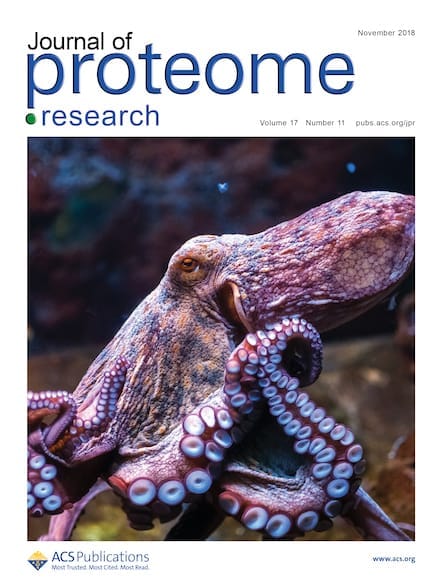“Synergy between the different types of ‘omics’” is how Journal of Proteome Research describes its scope. For the uninitiated, that means genomics, proteomics, metabonomics, and metabolomics. The journal also focuses on advances in methodology, including bioinformatics. The journal has long been a leader in the proteomics field—and now, it is under new, capable leadership. Professor […]

“Synergy between the different types of ‘omics’” is how Journal of Proteome Research describes its scope. For the uninitiated, that means genomics, proteomics, metabonomics, and metabolomics. The journal also focuses on advances in methodology, including bioinformatics.
The journal has long been a leader in the proteomics field—and now, it is under new, capable leadership. Professor John R. Yates, III, Ph.D., of The Scripps Research Institute is the new Editor-in-Chief of Journal of Proteome Research.
Yates has been involved with JPR since its formation, both as an editorial board member and frequent contributor. He has made significant advances in the proteomics field, most recently focusing on applied proteomics, protein biochemistry, mass spectrometry, and informatics. Yates earned the ACS Award in Analytical Chemistry in 2015 and in 2013, was named the most influential chemist in the analytical sciences by The Analytical Scientist. He has been an associate editor for Analytical Chemistry since 2001. He’s also published more than 800 research papers and holds several patents for his innovations.
Yates looks forward to taking the helm of JPR. And he’s doing so at a critical time. “All of the biological sciences are currently undergoing some soul-searching about experimental reproducibility,” Yates says. “We need to provide confidence in large, complicated proteomic data sets. JPR will be a leader in ensuring data are appropriately analyzed and validated.”
Yates succeeds Professor William Hancock, Ph.D. of Northeastern University. Hancock served as editor-in-chief of the journal since its inception in 2002. Analytical Chemistry Editor-in-Chief Jonathan Sweedler has served as interim editor-in-chief for Journal of Proteome Research during the search for Hancock’s replacement.
2016 marks another milestone for JPR: It is celebrating 15 years of publication. The online-only journal publishes 12 issues per year, with an average submission to ASAP time of 15.4 weeks, the fastest among its competitors. JPR received a 2014 Impact Factor of 4.245.
“I’m excited to be leading this flagship journal for the proteomic field,” Yates says. “My goal is to make JPR the premier place to publish new methods for proteomics and proteomic studies.”
By all accounts, the “omics” are in good hands.
